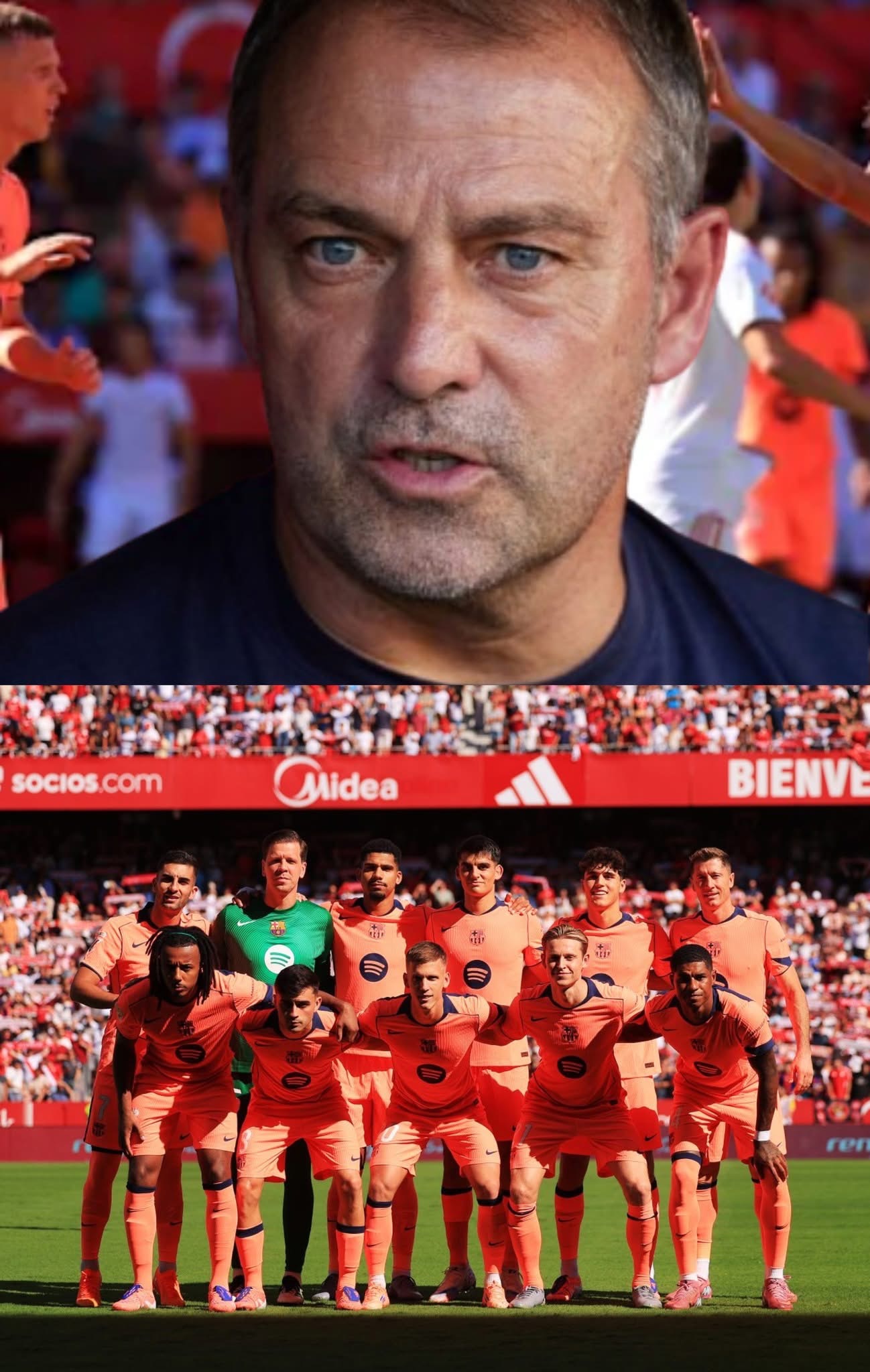At Old Trafford, drama often unfolds in ways that leave supporters and pundits alike struggling to keep up. Saturday night was no different. For Chelsea, the spotlight fell not just on the match itself but on manager Enzo Maresca’s shock tactical decisions, particularly the early substitution of Cole Palmer after just 20 minutes. The moment Palmer trudged off the pitch, visibly furious, the conversation about Chelsea’s direction shifted from the result to the manager’s judgment.
The decision — part of a radical triple substitution following a red card — has quickly become one of the most hotly debated moves of Maresca’s short tenure at Stamford Bridge. For fans, analysts, and even neutral observers, the question is simple: was this a brave tactical adjustment or a reckless act of desperation?
The Match Context: A Red Card That Changed Everything
The match began with intensity, as expected between Manchester United and Chelsea. Both sides pressed aggressively, looking to seize early control. But the balance was shattered when Chelsea suffered a red card inside the first quarter of an hour.
Suddenly, Maresca’s side faced the prospect of playing nearly 80 minutes with ten men against a United team growing in confidence. This was the pivotal moment where tactical decisions became as important as individual talent.
What followed was as surprising as it was controversial. Rather than adjust shape with minimal disruption, Maresca turned to his bench and made three substitutions simultaneously — an almost unheard-of gamble so early in a high-stakes clash.
Palmer’s Substitution: The Flashpoint
The most shocking of the three substitutions was undoubtedly the removal of Cole Palmer, Chelsea’s creative heartbeat and one of their most influential players this season.
Palmer’s reaction said it all. He shook his head, muttered to himself, and walked off the pitch with clear frustration etched across his face. His anger wasn’t hidden — cameras caught every moment, and fans on social media erupted instantly.
For many, this was not just a substitution. It was a symbolic moment that suggested Chelsea’s willingness to abandon their attacking identity, even at the cost of alienating their star performer.
Maresca’s Logic: Defensive Reinforcement at All Costs
To understand Maresca’s decision, we must consider the tactical logic. Reduced to ten men, Chelsea were always going to struggle against United’s pressure. By withdrawing Palmer, Maresca likely sought to add defensive stability and prevent a humiliating scoreline.
In football, managers are often forced to make “sacrificial” substitutions after red cards — typically removing a forward to reinforce midfield or defence. But the boldness of Maresca’s move lay in its scale: three attackers gone in one swoop, leaving only João Pedro up front.
It was an attempt to reconfigure Chelsea into a compact, defensive block, hoping to frustrate United and perhaps snatch something on the counter. In theory, it made sense. In practice, it left Chelsea without their best creative outlet and sent a damaging message to the squad.
Fan Reaction: Outrage and Disbelief
The backlash was swift and brutal. Social media erupted with criticism:
- “You don’t take Palmer off in the 20th minute, no matter what. He’s the one who can create something out of nothing.”
- “Maresca has lost the plot. Three subs before halftime? This isn’t management; it’s panic.”
- “This decision will come back to haunt him. Palmer’s reaction says it all.”
Many Chelsea fans saw the substitution as an act of surrender — a concession that winning was impossible. Worse still, the sight of Palmer’s fury suggested a potential rift between manager and star player, a dangerous dynamic in any dressing room.
Media Commentary: Divided Opinions
Pundits were equally divided. Some defended Maresca, noting that survival sometimes requires ruthless decisions.
“Managers are paid to make tough calls,” one analyst argued. “If Maresca believed Palmer couldn’t give the defensive work rate required after the red card, he had no choice.”
Others were less forgiving. Former Chelsea player Frank Leboeuf criticized the move as self-destructive:
“You don’t remove your most creative player that early. Palmer is the kind of talent who can turn a game with one pass, even when down to ten men. Taking him off killed Chelsea’s attacking threat completely.”
Palmer’s Perspective: A Star Left Humiliated
From Palmer’s point of view, the decision must have felt humiliating. He has been Chelsea’s standout performer this season, consistently producing goals, assists, and moments of brilliance. To be sacrificed so early in a marquee match sends a painful message: you are expendable.
His visible frustration on the pitch is understandable. Players accept substitutions as part of the game, but being withdrawn before halftime, without injury, often feels like a public indictment. For a rising star like Palmer, who thrives on confidence, the psychological impact could be significant.
Dressing Room Fallout
The bigger question now is how this decision will resonate within the Chelsea dressing room. Footballers are not blind to symbolism. When a manager removes his best attacking player 20 minutes into a match, it signals a lack of faith not just in that player but in the team’s ability to fight back.
Will Palmer forgive and move on, or will resentment linger? Will other players begin to doubt Maresca’s judgment? Dressing-room harmony is delicate, and bold decisions can either inspire or divide. Maresca has gambled not only with tactics but with team morale.
The Tactical Gamble: Did It Work?
In purely tactical terms, the outcome was mixed. Chelsea did become more compact after the substitutions, limiting United’s opportunities for a while. But the absence of Palmer and other attackers left them toothless going forward. João Pedro battled bravely, but without support, he was isolated.
Ultimately, Chelsea still conceded goals, and their attacking threat evaporated. The gamble bought time but not salvation.
What It Means for Maresca
For Maresca, this moment could define his tenure at Chelsea. If results improve, his boldness will be praised as ruthlessness in the face of adversity. But if the team continues to struggle, the Palmer substitution will be remembered as the moment he “lost the plot.”
Chelsea fans are notoriously unforgiving when it comes to managers perceived as out of their depth. Sacrificing a star player like Palmer so early — especially in such a visible and humiliating fashion — may prove to be a turning point in how supporters judge Maresca.
The Bigger Picture: Trust, Identity, and Progress
At its heart, this controversy is about more than one substitution. It is about trust — between manager and players, between coach and supporters. Chelsea fans want to believe in Maresca’s project, but moments like this erode faith.
It is also about identity. Chelsea, under Abramovich and now under new ownership, have always prided themselves on being competitive against the biggest clubs. Retreating into a defensive shell at Old Trafford, sacrificing your best attacker, feels out of step with that tradition.
Finally, it is about progress. Chelsea are supposed to be building toward a future around talents like Cole Palmer. Alienating him with such decisions risks undermining that long-term vision.
Conclusion: A Risk That May Haunt Chelsea
In football, bold decisions can define legacies. For Enzo Maresca, the decision to remove Cole Palmer after just 20 minutes was certainly bold — but whether it was wise remains to be seen.
Palmer’s fury on the touchline, the fan outrage, and the media scrutiny all ensure this moment will not be forgotten quickly. If Chelsea recover and push forward, it may be remembered as a bump on the road to progress. If not, it will stand as the moment where faith in Maresca began to unravel.
For now, one thing is certain: Chelsea’s 3-1 defeat at Old Trafford will be remembered not for Bruno Fernandes or Casemiro’s goals, but for Cole Palmer’s furious walk off the pitch, and a manager’s gamble that may have changed everything.





